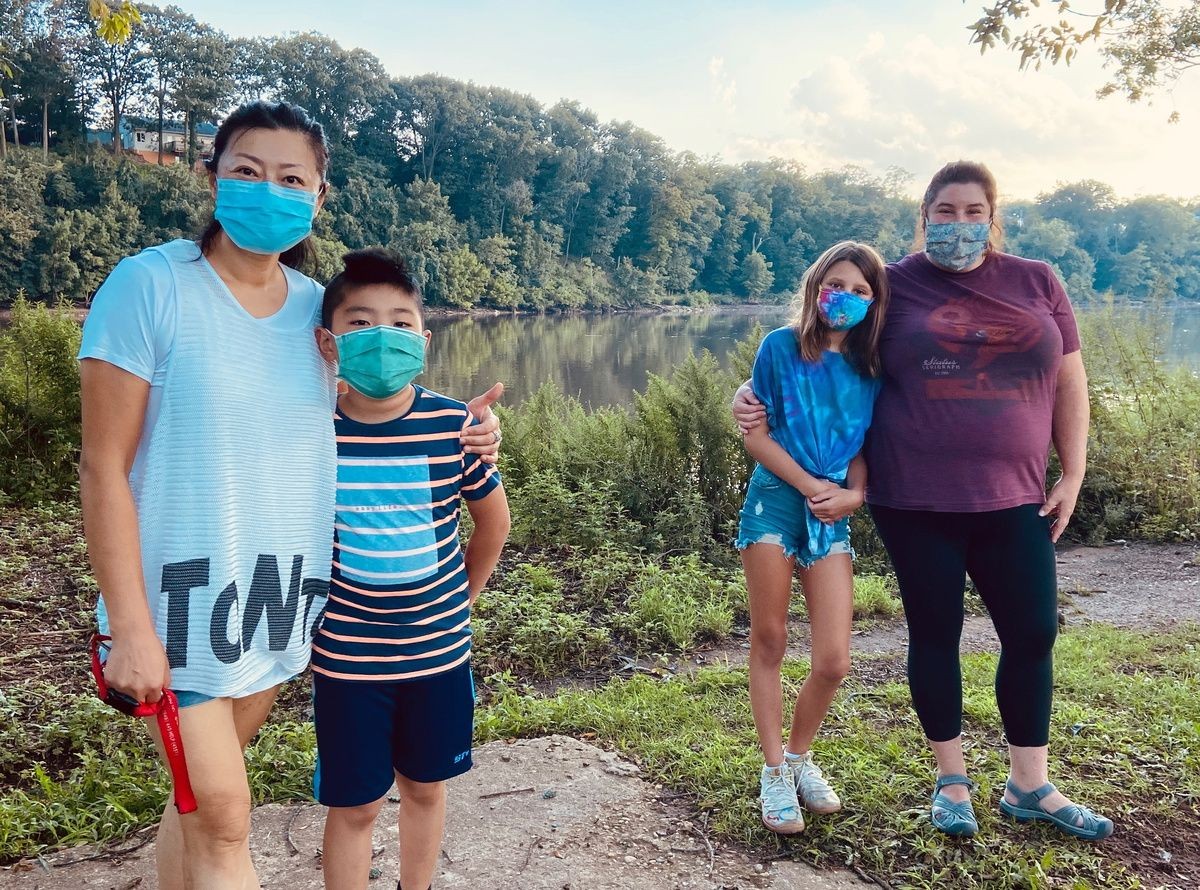By Laurie Herrick, Preventionist
Ask any parent what usually happens when their child starts asking them questions and they will probably tell you that it leads to more questions. They want to know more, they want to understand and they want to hear it from you.
I have a 10-year-old daughter who asks me more questions than I can keep track of. I love her willingness to learn about and understand the world around her, so I always want to be prepared to answer her questions. It is not always easy and I don’t always have all the answers, but I can often navigate the situation successfully with the right communication techniques.
As a presenter of programs for parents and children, I am often asked for tips on how to effectively communicate with children. Here are a few ways you can effectively communicate with your curious child and provide age-appropriate answers to their questions.
1. Make a direct connection with them.
Most children will pay attention when you address them by name and make eye contact with them. For smaller children, this may mean meeting them at their eye level.
2. Model the communication you want to see from them.
It is important to talk to your children the same way you expect them to talk to you. Say “please” and “thank you” when appropriate and be respectful. Children often model what they see and it is important to set a good example using good manners.
3. Use positive language and offer options.
When speaking to your child, use positive language. If they are asking for permission to do something and your first thought is to say “no,” try giving them some options instead. For example, you can allow them to choose between these two outfits or these two books today.
4. Simplify your directions.
If you need your child to do something, give them simple directions. Tell them exactly what you need them to do. Sometimes we provide kids with instructions that have many steps and they cannot remember them or become confused. Then the child will become frustrated and the task will not be done, upsetting both of you.
5. Listen closely and be honest when responding.
If your child wants to talk to you about a serious topic, such as COVID-19, make sure they have your full attention. Don’t interrupt when they are talking, make eye contact, and most importantly, listen.
Understandably, kids have questions about COVID-19 because they are concerned and worried. They look for adults to provide them with comfort and reassurance. When answering their questions, talk calmly and be honest.
If you don’t know the answer to a question, be honest and tell them you are not sure but you will try to find the answer. But, it is imperative that you try to obtain the answer to their question and follow up with them.
There may even be some questions you will never be able to answer and it is OK to say that. Comfort them by letting them know sometimes not everyone has the answers or the ability to predict the future.
6. Consider their age and maturity when answering questions.
When responding to your child, it is also important to make your answers are age-appropriate. Older children have more access to media sources. You can ask your child open-ended questions about what they are seeing online or in the news and what is concerning them. For example, you can ask, “What are you hearing about the coronavirus? or “Where are you getting your information?”
Show them credible websites and resources to obtain their information. If they seem overwhelmed, talk about limiting the amount of time they check the news.
7. Follow their lead.
Many younger kids may just want to talk and it’s important to follow their lead. Don’t offer more information than they are looking for. Use a calm voice and provide a safe space for your child to express their thoughts or fears.
I’ve used COVID-19 as an example, but these tips can be used to talk to kids about topics such as bullying, friendships, world events, etc. Soon, you will be more confident about communicating more effectively with your child.
Continue to check in with your child periodically and initiate these exploratory conversations. If you are concerned about increased bouts of anxiety or worry in your child, you can always reach out to a pediatrician or mental health professional.
Follow Wellspring Center for Prevention’s Parentally Speaking blog and our Instagram and Facebook accounts (@wellspringcenterforprevention) for more tips on helping your child navigate these difficult times.
Image credit: Laurie Herrick

